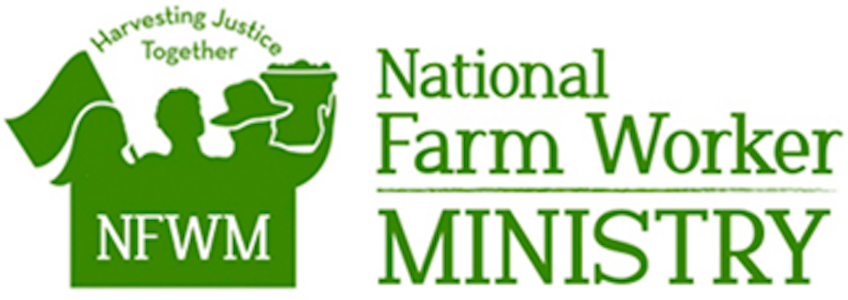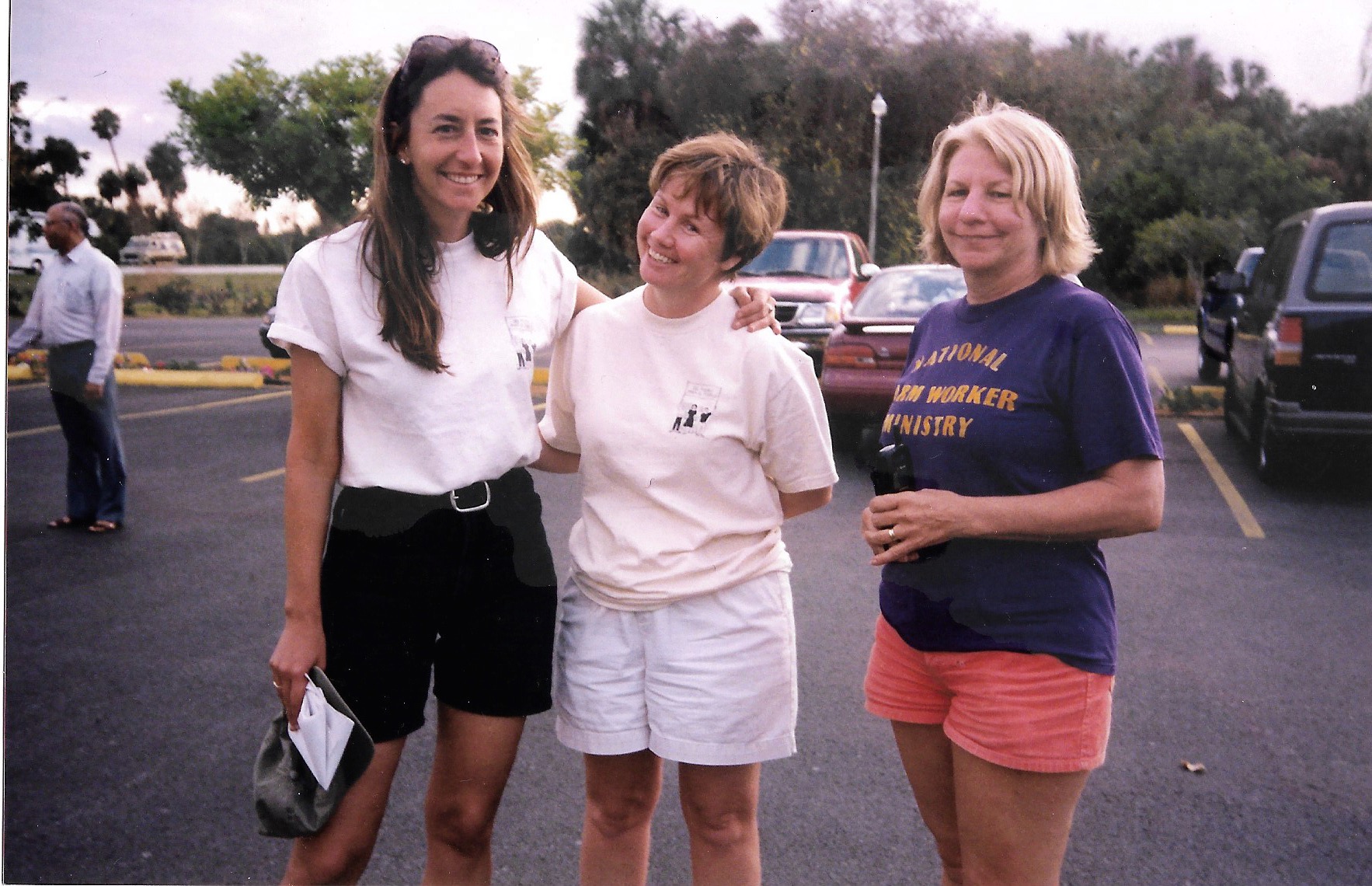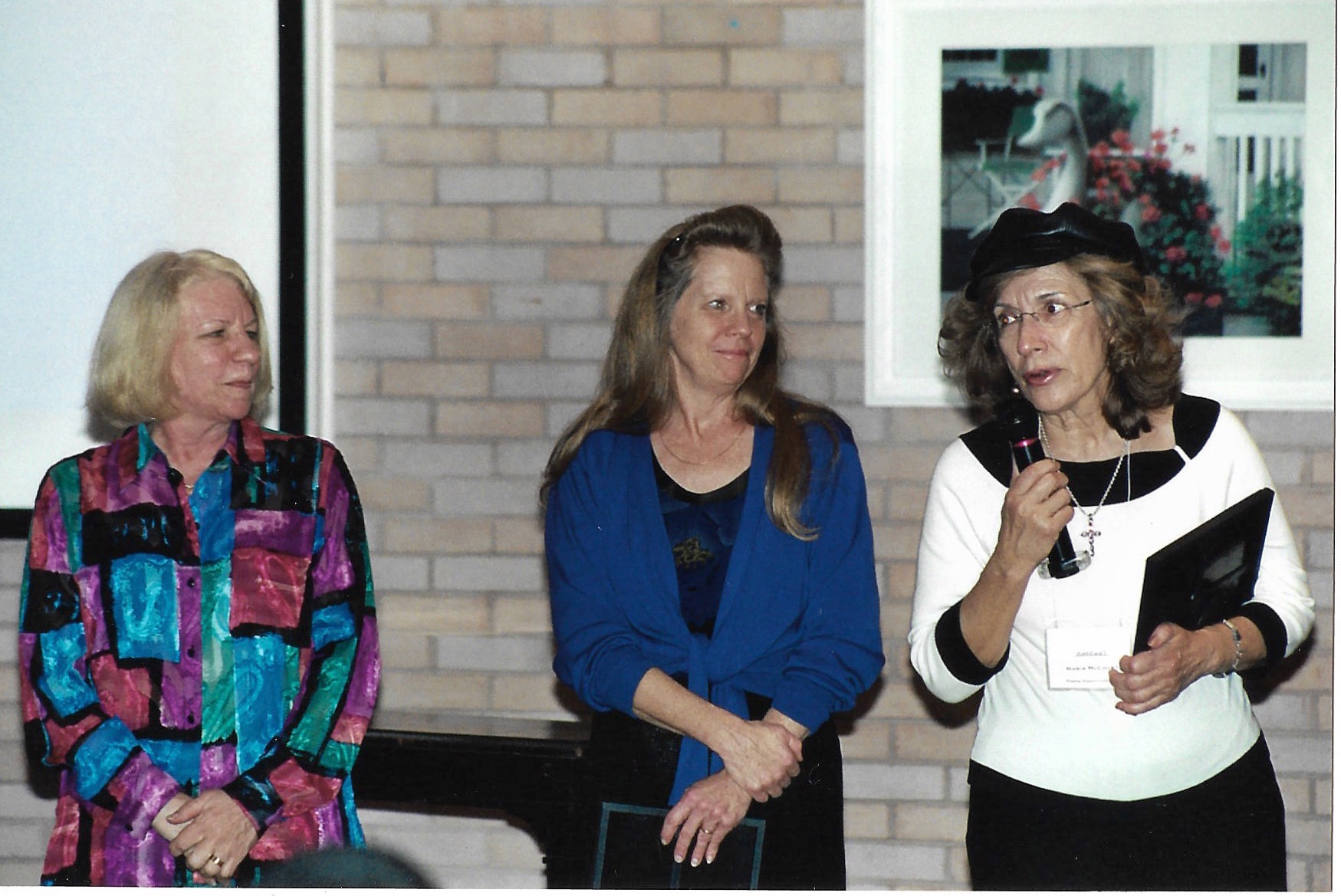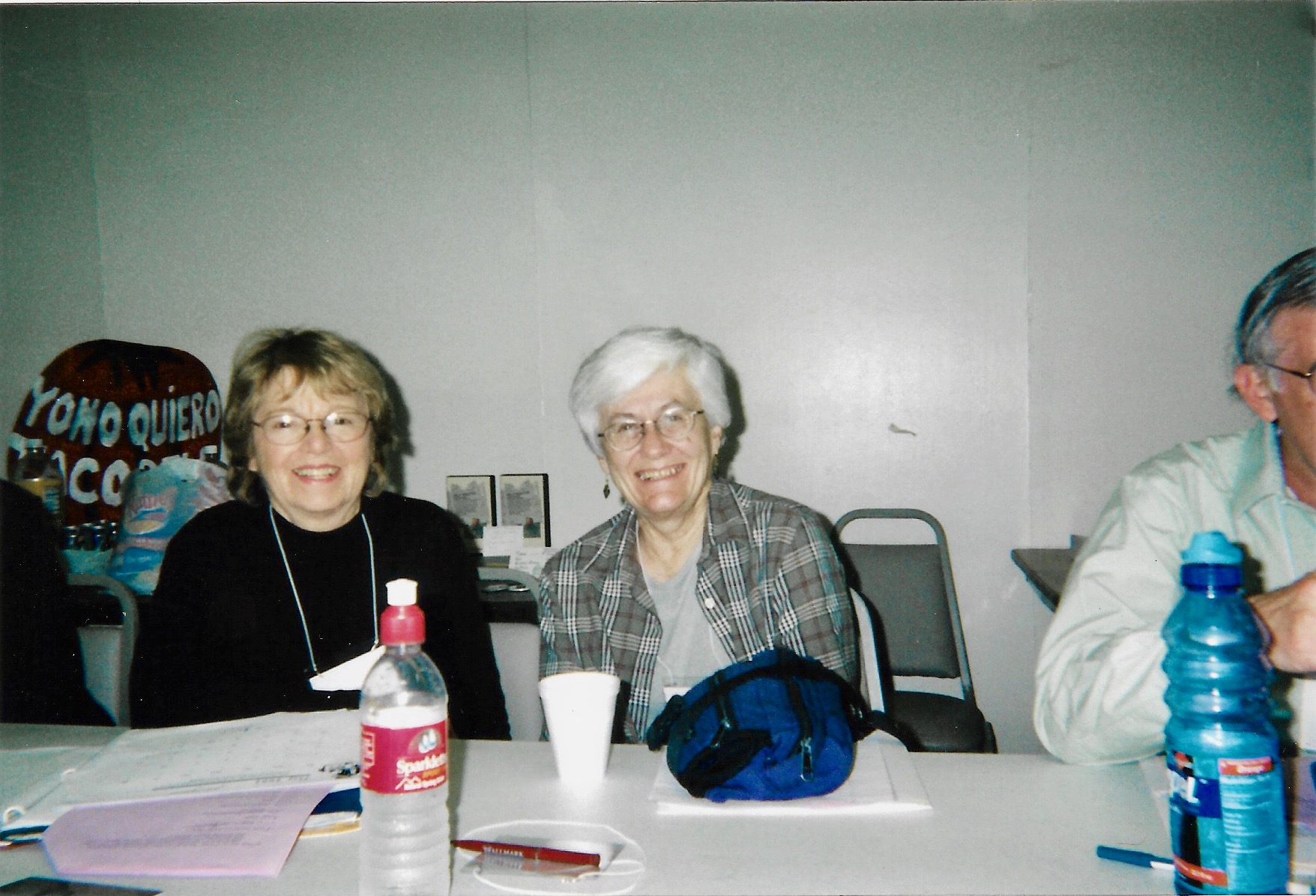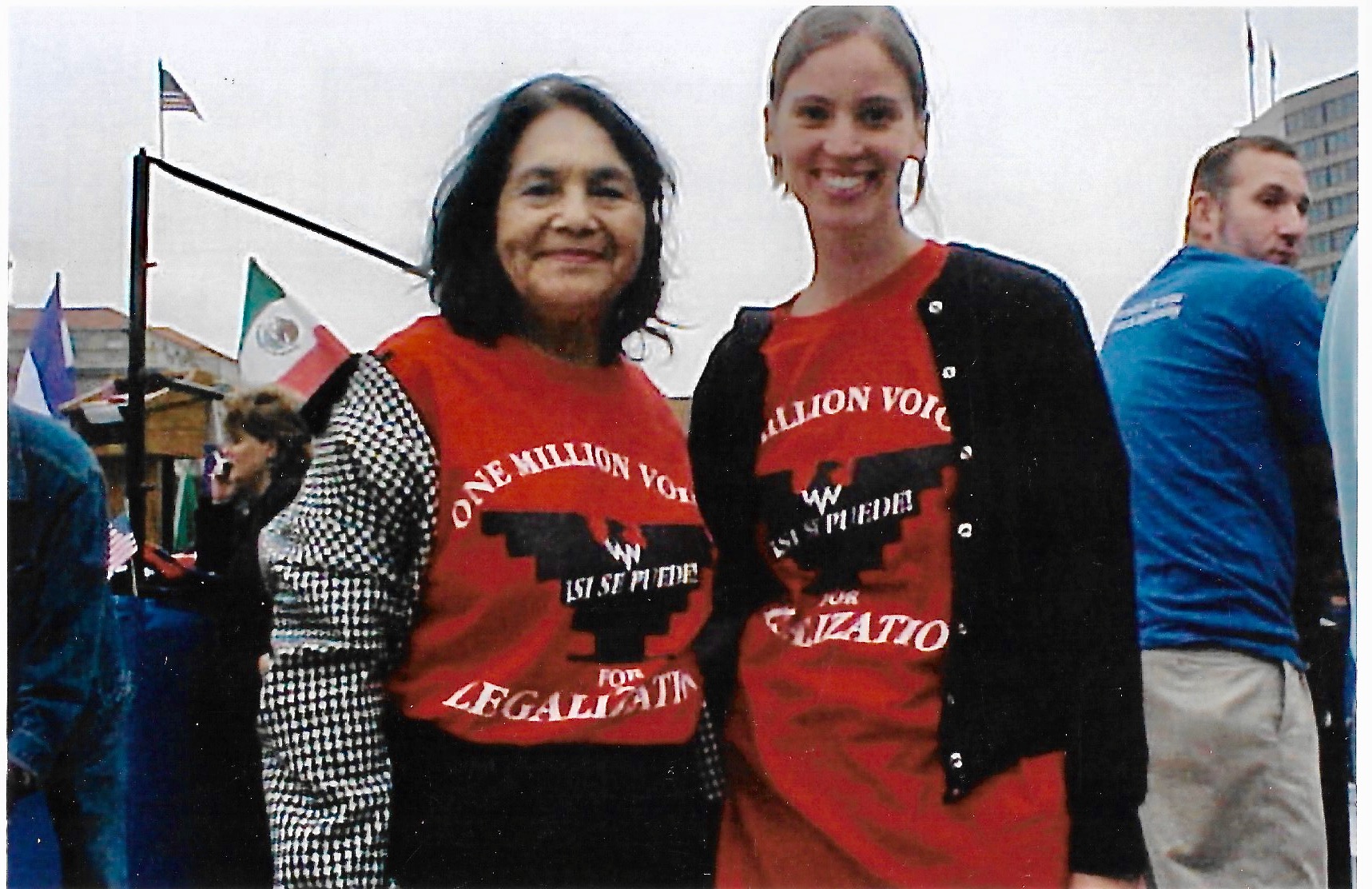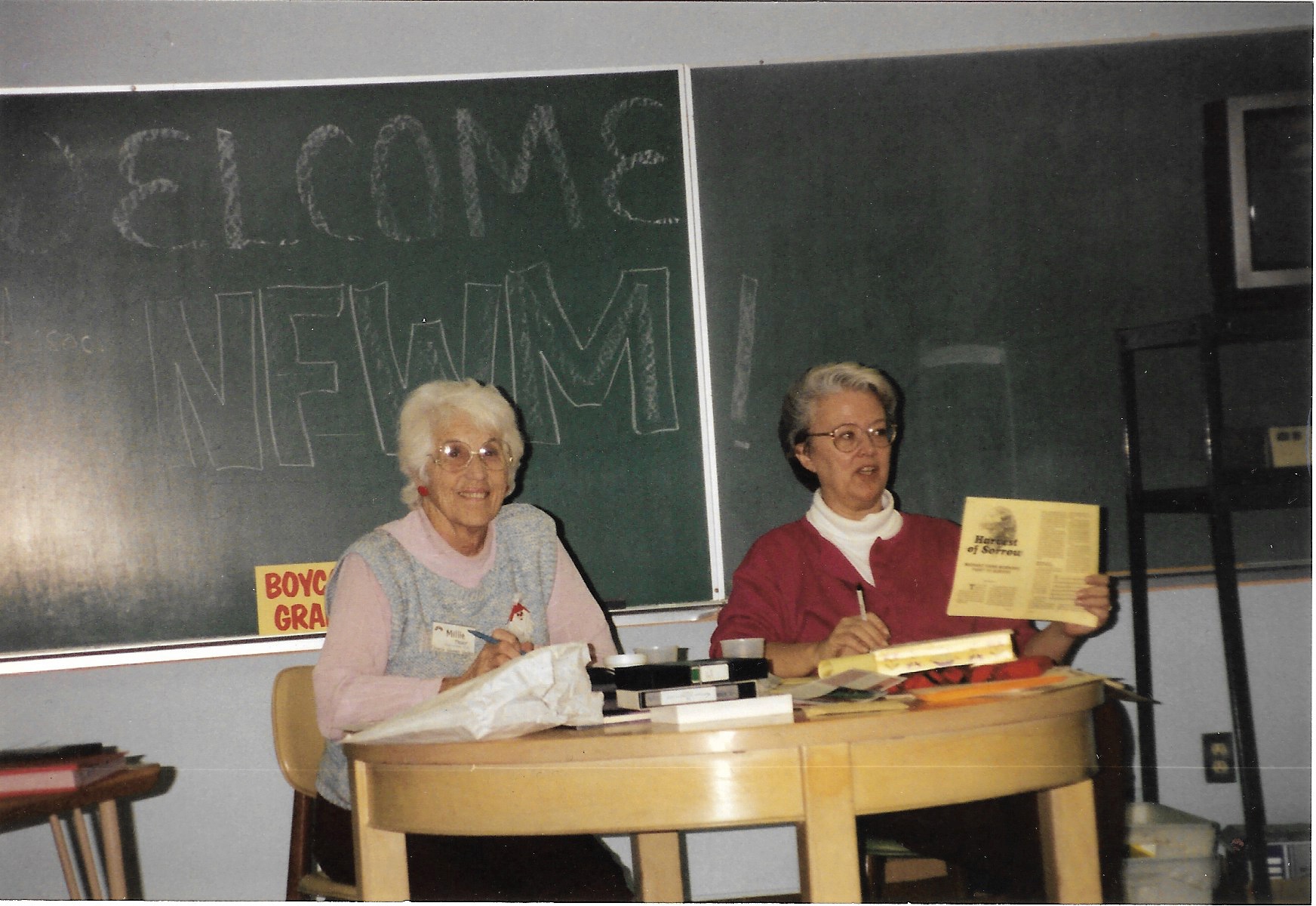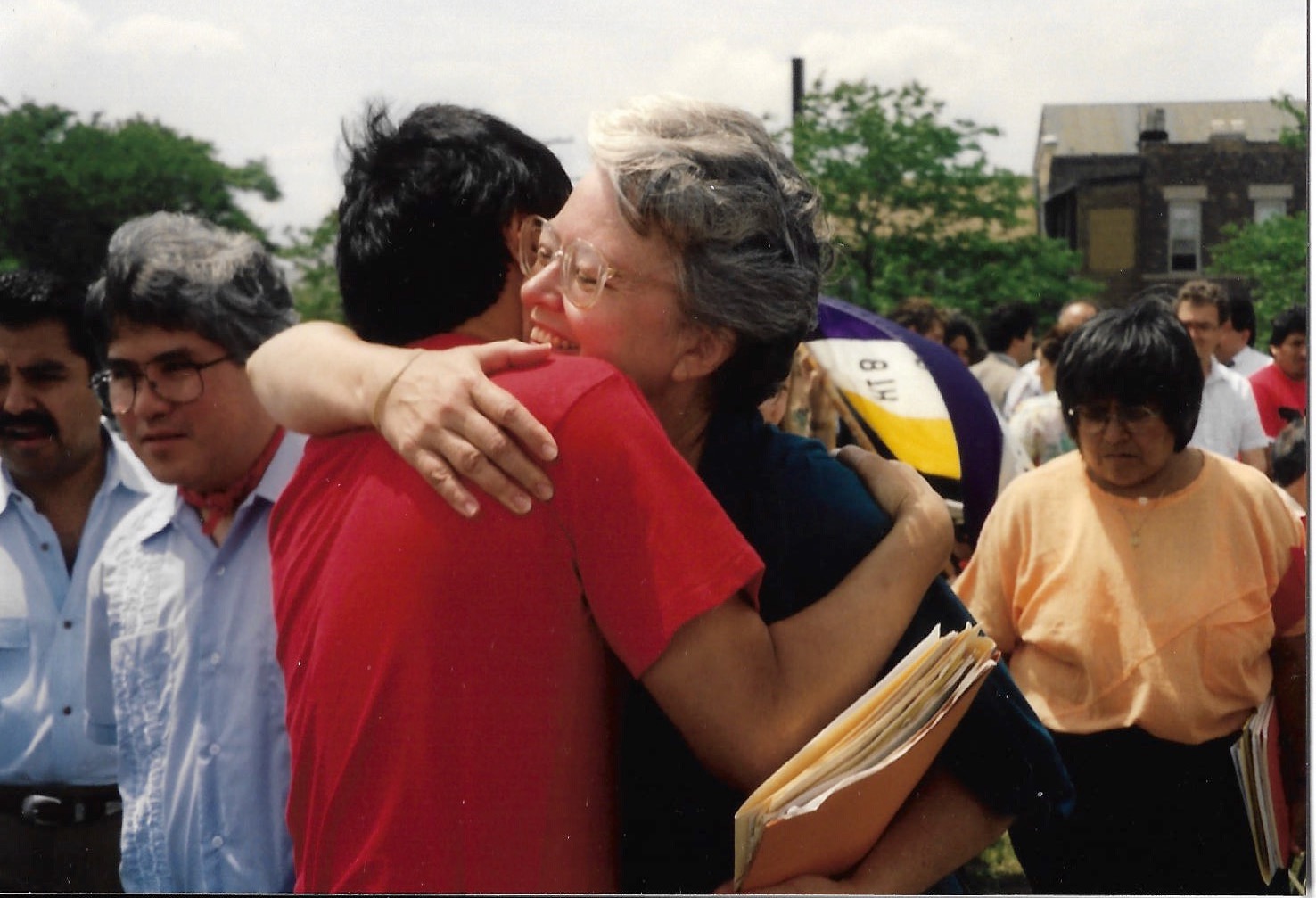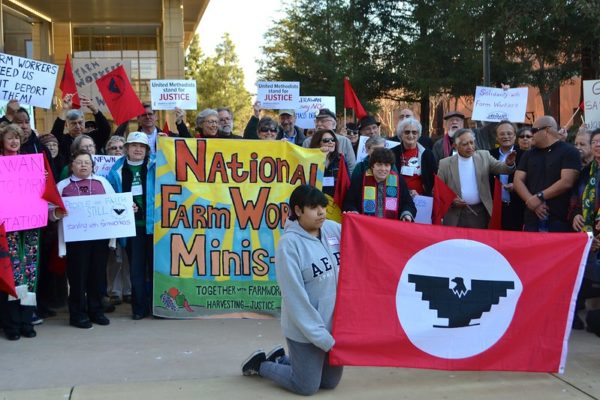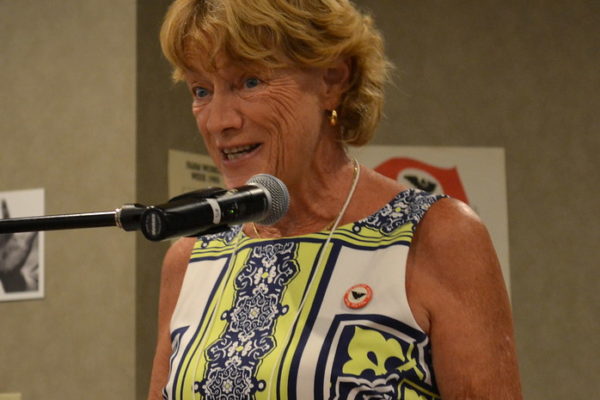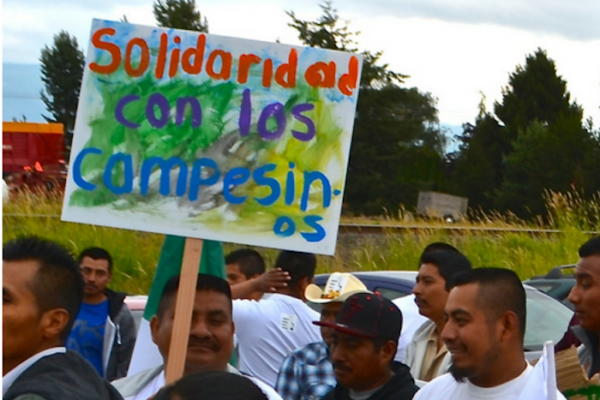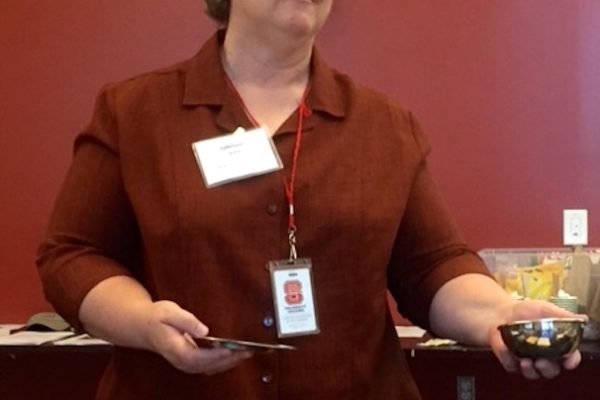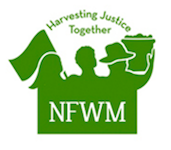“Behind every successful man, there is a great woman” as the saying goes. History books are filled with the accomplishments of men, but all too often, the successes of history’s great women are not as well known.
These are just a few of the stories of the women whose faith, service, humility, and unnerving strength are an important part of the National Farm Worker Ministry’s history.
Sue Minor, NFWM staff
“Sue Minor was part of the transition [to the National Farm Worker Ministry]. She was Chris [Hartmire’s] secretary. She was a saint. She needs to be remembered. She was motherly but not a hovering kind of motherly. She was dependable and kind. She got paychecks out on time and got clear messages to Chris. In a time before cell phones, she was how we reached him,” remembers Susan Drake, who along with her husband, Jim Drake, a United Church of Christ pastor, worked for the California Migrant Ministry and then the NFWM.
“Sue Minor was, for years, the executive secretary and she really ran the joint. Chris was commuting from the office in LA to La Paz because he was splitting his time between the Ministry and the union [UFW],” reflected Gene Boutilier, a founding board member of NFWM. “She was a major source of continuity.”
Pat Hoffman, NFWM staff
“No one had time to bring me along by the hand. Chris [Hartmire] would tell me to go to a meeting in another city and I would have to just go and figure it out,” said Pat Hoffman, an early staff member for both the California Migrant Ministry and the National Farm Worker Ministry, and author of the Ministry of the Dispossessed: Learning from the Farm Worker Movement.
As one of the first members of the NFWM staff, Pat remembers the unrelenting speed of the work, the dedication and commitment to the cause, and her role as an educator to raise awareness among church women. As part of Pat’s work, she would arrange opportunities for church women to attend strikes and witness the conditions in the fields. She recalls a 3-hour trip to Delano, CA when a woman told her she had to tell her husband that she was going to a regional church women’s group because he wouldn’t have let her go otherwise.
“It was exciting for these women to have these opportunities [to visit the fields]. The women [had been] doing charity and not getting to really see what was happening. We talked about leaving the charity at home and boycotting grapes instead. The women had a greater capacity for making change than the men in the churches.”
Pat would also bring farm workers to church meetings to share their stories. She recalled one experience in which she invited a farm worker named Maria to speak to a group of Methodist women in Delano. They shared a hotel room the night before and Maria dismantled the covers on her bed, wrapping herself only in a single blanket. She explained to Pat that at home, they didn’t have covers so she wasn’t used to sleeping that way.
“Women were very responsive to her,” said Pat. “She was, without identifying it, doing what [white] women were doing. It was feminism, but she didn’t call it that. Everything she did was what you never did in her culture, but she came from a union family so they let her. She had not been speaking English for long when she joined the strike. ‘They sent me to New York with only a few words of English,’ she told me. ‘I got lost in the city,’ she said, but she told me a wonderful story about her experiences and how she negotiated that. All of the women kept saying to her ‘good for you, go for it.’”
Roberta “Bert” Perry, NFWM staff
“I worked with UFW on their Florida campaigns. There was a guy named Randy Cecil who was working for UFW and one of his main projects was talking directly with workers. He had to be able to go into the field to organize workers so we used to go and stand at the edge of the field as observers to make sure nobody beat him up or shot him,” remembers Roberta “Bert” Perry, a 32-year NFWM staff veteran who was based in Florida. “The growers didn’t want union organizers to talk to their workers. We met some very unfriendly people. The farmers would come to the edge of the field with their guns and stand there with their rifles. One of my jobs was to go to the local police and let them know we were going to be there. We had no intention of trespassing but they [the police] would drive by to watch us. It was intense.”
When reflecting on her life-long commitment to the farm worker movement, Bert says she was inspired by her father, but not in the way you might assume. “My father was what they would today call a white supremesist. I didn’t understand, even as a kid, why he disliked other people so much. He didn’t like anybody but white Americans. [My involvement in the farm worker movement] is partly a reaction to that. Growing up that way got me interested in other people and other cultures and being with farm workers was a good experience for me.”
